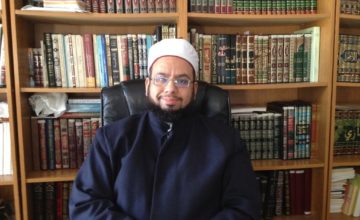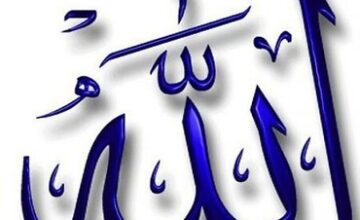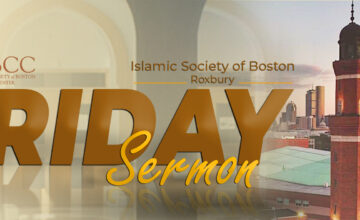(8) Manhood in the Quran
There are four points to discuss in this regard:
- The first virtue of manhood is purity.
- The second virtue of manhood is working hard for the Day of Judgment.
- The third virtue of manhood is Steadfastness
- The fourth virtue of manhood is having a positive attitude in life.
People, in general, have different views about the criteria of manhood.
Some people may think that being a male and being a man is the same thing. This is not an accurate understanding, because not every male is a man. Manhood is independent of gender. It is a group of virtues.
A- The first virtue of manhood is purity.
Purity in Islam has two parts: internal purity and external purity. The purity of both the inside and the outside
Allah (SWT) says: “In it are men who love to clean and to purify themselves. And Allah loves those who make themselves clean and pure.” (At-Tawba, 108).
Internal purity is for the heart to be free from envy, hatred, malice, hypocrisy, and enmity. The heart of the Muslim should be healthy, clean and pure. It should have no place for the sicknesses and diseases that disturb the peace of the soul.
The Prophet (PBUH) was asked about the best of people. He said: “The best of people is the person who has a truthful tongue and a heart which is “makhmoum”. This is a virtue of the person who is pure, pious and has no place in his heart for hatred and malice.” (At-Targheeb wat-Tarheeb, 4/33).
As for the external purity, it is best for the Muslim to be clean in his appearance. This can be achieved by having good hygiene and wearing clean clothes. Moreover, it is best for the Muslim to be in a state of ablution most of the time.
Making ablution frequently is a very good thing to do because ablution upon ablution is light upon light, and it is a protection for the Muslim.
Allah (SWT) said: “And purify your garments. And keep away from the idols.” (Al-Muddaththir, 4-5).
B- The second virtue of manhood is working hard for the Day of Judgment. (Al Akhira).
Allah (SWT) says: “In houses (mosques), which Allah has ordered to be raised (to be cleaned, and to be honored), in them His Name is glorified in the mornings and in the evenings.” (An-Nur, 37).
Allah (SWT) describes true men in the Qur’an to be those people who are eager to attend His houses of worship and are not distracted by business and trade from fulfilling their duty toward Allah.
Those men spend most of their time doing Dhikr (remembrance of Allah) and Istighfar (asking forgiveness) and are fearful of the Day of Judgment. On that day the hearts of people will be exposed and the records of deeds will be spread open.
True men work hard and prepare seriously, so that Allah may make it easy on them and help them through the obstacles and hardships that everyone will be faced with.
C-The third virtue of manhood is Steadfastness.
This is the persistence on one’s principles and honesty with Allah (SWT). On this topic, Allah(SWT) says: “Among the believers are men who have been true to their covenant with Allah, of them some have fulfilled their obligations , and some of them are still waiting, but they have never changed. they never proved treacherous to their covenant which they concluded with Allah] in the least.” (Al-Ahzab, 23).
Allah (SWT) has described to us the companions of the Prophet (PBUH) as honorable and truthful men. This is because they adhered to Islam despite the difficulties, and they remained steadfast in their battles against the enemies of Islam. Steadfastness is a great virtue. Throughout history it has been seen only in the greatest of men, the likes of the prophets and companions of the Prophet Mohammad (PBUH).
D- The fourth virtue of manhood is having a positive attitude in life.
This is very important and it means rejecting injustice and oppression.
The Muslim should have a positive attitude in changing things in real life situations.
This requires from the Muslim to work continuously in the serious pursuit of reformation and change to the better.
Life has no meaning when people do not support the weak and the oppressed and when they do not try to stop the oppressors and those who carry out injustice.
In this regard Muslims should follow the examples of the believer from aal Firaon and the believer from al-Yaseen.
Allah (SWT) says: “And there came running from the farthest part of the town, a man, saying: “O my people! Obey the Messengers.” (Yaseen, 20).
Allah (SWT) also says: “And there came a man running from the farthest end of the city. He said: “O Musa (Moses)! Verily, the chiefs are taking counsel together about you, to kill you, so escape. Truly, I am one of the good advisers to you.” (Al-Qasas, 20).
In another ayah, Allah says: “And a believing man of Fir’aun’s (Pharaoh) family, who hid his faith said: “Would you kill a man because he says: My Lord is Allah.” (Ghafir, 28). Both men came from a distant place and endured severe hardships to aid and support others who were oppressed by tyrants.
May Allah make us among them.
Written by: Dr. Ahmed A. S. Hammouda
Professor in Al-Azhar University
And Islamic American University
Translated by: Abdullah Zettili




